It’s cold and flu season, and essential oils might just be the thing you need to get through it.
Essential oils have been used for centuries as a natural remedy for all sorts of ailments, from the common cold to skin conditions.
In this blog post, we will go over 10 essential oils that are great at combating respiratory illnesses such as the flu.
What are essential oils?
Essential oils are natural oils that are extracted from plants. They are often used in aromatherapy to promote relaxation and well-being and can sometimes be used to treat various illnesses.
Many essential oils have chemical compounds that are antibacterial, anti-inflammatory, and antiviral, which can combat viruses such as the flu.
These essential oils are not meant to replace medication or medical treatment, so always consult with your doctor before using essential oils to treat any illness.
How do essential oils work?
Essential oils are absorbed into our bodies by applying to the skin or inhaling essential oil vapors through oil diffusers.
When inhaled, the vapors travel down into the lungs, where their antiviral properties work to attack viruses such as the flu virus.
For instance, certain essential oils can help relieve symptoms such as fever and congestion when applied to the forehead and chest area with a carrier oil like coconut oil. Inhaling essential oils from a tissue placed near your nose is another way essential oils work against respiratory illnesses.
There are many ways to use essential oils to combat ailments. Still, essential oils are best used when combined with other natural remedies to maximize effectiveness.
How do I safely use essential oils when I’m sick?
Essential oils for flu are generally safe to use, but it is always important to consult with your doctor before using essential oils to treat any illness.
When using them, dilute essential oils with a carrier oil like coconut oil and avoid contact with the eyes. Mix a few drops of essential oils with the carrier oil and apply to your skin or add a few drops of essential oils to an aromatherapy diffuser.
There are also essential oil rollers that can be applied directly on areas where you feel pain, but it is important not to ingest essential oils orally unless under the guidance of a medical professional.
If you are pregnant or breastfeeding, please consult your doctor before using essential oils.
Top 10 Essential Oils for Flu and Other Respiratory Illnesses
If you are starting to exhibit cold and flu symptoms, these amazing essential oils will help boost your immune system while making sure to fight off cold and flu germs within your body:
Lemon Essential Oil
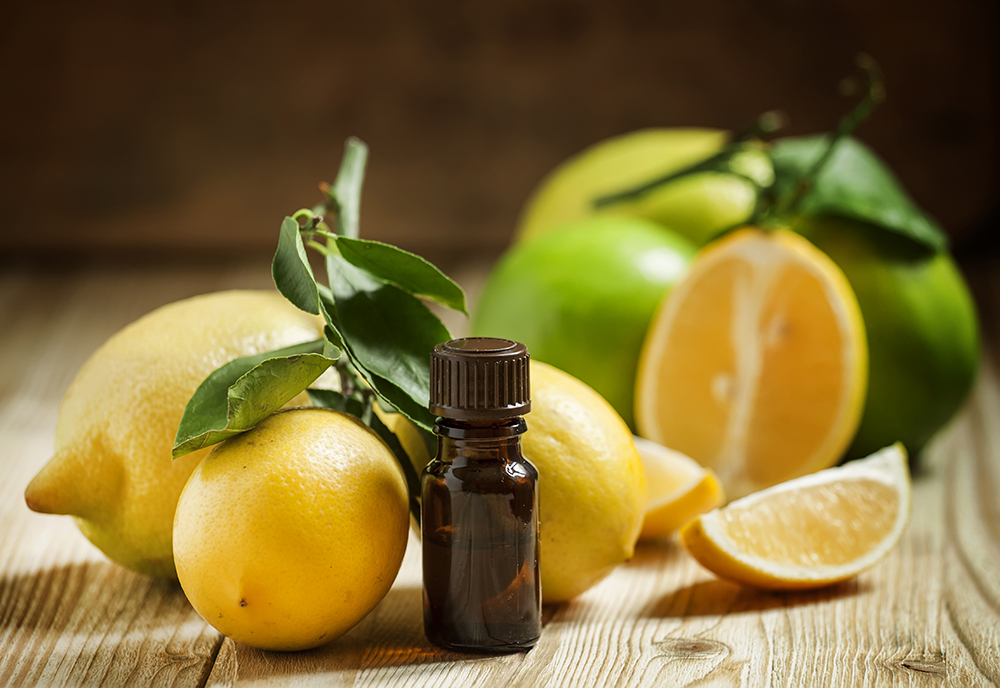
Lemon oil is a great essential oil to have on hand during cold and flu season. It has antiviral, antibacterial, and antiseptic properties that make lemon effective at fighting cold and flu viruses.
Lemon is also a great detoxifier, which helps the body get rid of toxins that can build up when sick. It has compounds that help improve energy levels and mood, which is essential when you feel run down, especially when you have a fever.
This citrus oil can be used in various ways to help relieve symptoms associated with the flu and cold, such as adding a few drops to the diffuser or mixing it into homemade cleaning products to kill germs on surfaces that you touch.
You can also inhale it directly by adding one or two drops on a tissue or using it to make a hot lemon drink.
Tea Tree Essential Oil

A staple essential oil during winter months! Tea tree oil is a natural antiviral, antibacterial, and antifungal agent that makes it great for fighting off respiratory illnesses.
It has a strong woodsy smell, which some people find unpleasant, but the benefits are worth it. Tea tree oil can also be used to treat a variety of issues such as acne, athlete’s foot, dandruff, and fungal infections because it contains compounds that are effective at reducing inflammation, redness, and pain.
Tea tree essential oil can be diffused or inhaled directly by adding one to two drops of the essential oil to a tissue. It can also be mixed with water and sprayed in an area where you spend more time, such as your bedroom, office desk, or even the car.
Lavender Essential Oil
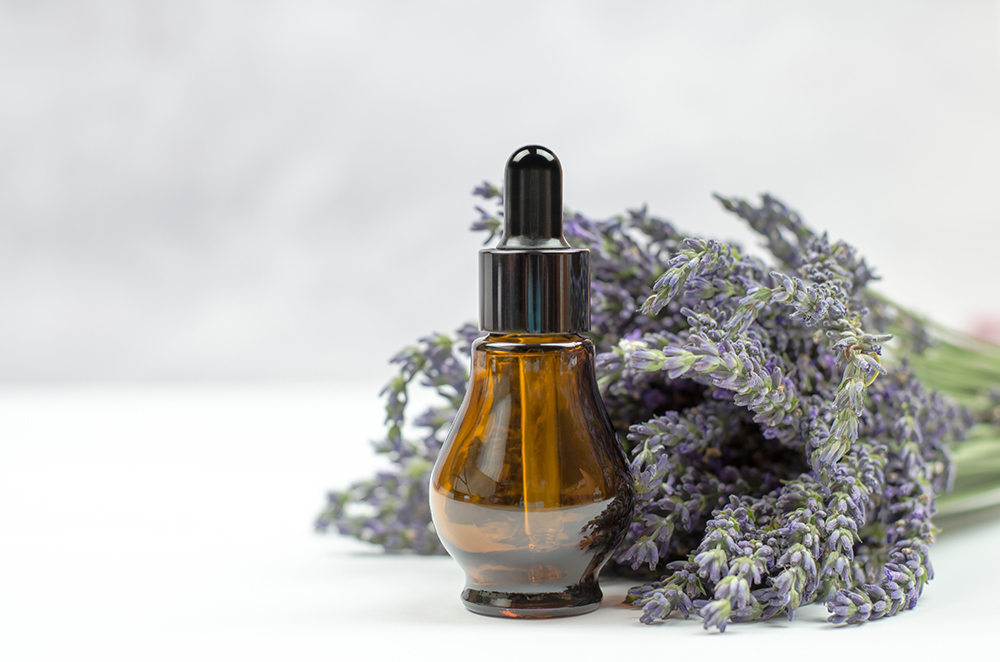
Also known as the “Swiss Army Knife” of essential oils, lavender has a sweet floral smell that is highly relaxing and calming.
In aromatherapy, lavender oil promotes feelings of relaxation and calmness, which helps when you have the flu or cold because stress can worsen your symptoms. This versatile essential oil also works as an antiseptic, anti-inflammatory, and analgesic agent.
Lavender essential oil can be diffused or added to a bathtub when you feel overwhelmed with your symptoms. It can also be applied directly to the skin as a topical treatment. For respiratory issues, lavender oil is best used with other essential oils such as rosemary or peppermint oil.
Peppermint Essential Oil

Peppermint essential oil is known for its potent antimicrobial, anti-inflammatory, and analgesic properties that can help with upper respiratory issues because of the cooling sensation it provides.
Peppermint contains compounds such as menthol that help open up the airways and clear congestion. It is also a great essential oil for headaches and nausea, which are common symptoms associated with the flu.
It also helps to improve focus, concentration, mental clarity while giving you an energy boost. Hence, this essential oil is an excellent go-to remedy if you feel sluggish or lethargic due to colds and flu.
Peppermint essential oil can be inhaled directly or diffused in the air using your essential oil diffuser. You can also create an essential oil blend for colds and flu by using a carrier oil, peppermint, and oregano oil to apply topically to the chest and back.
Eucalyptus Essential Oil
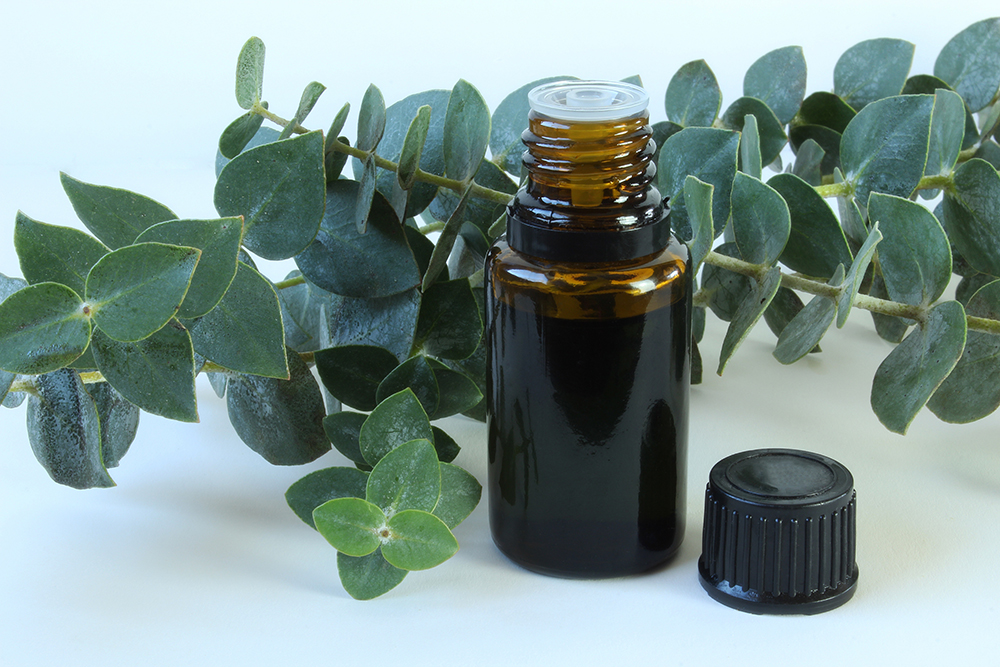
Like peppermint, eucalyptus has a robust and menthol-like smell that is refreshing and cooling. It is excellent for treating respiratory illnesses because of its anti-inflammatory, analgesic, and antiseptic properties.
Eucalyptus essential oil helps to open up the airways and clear congestion. It also has a stimulating effect that can help to improve energy levels and mood.
Eucalyptus oil is best diffused in the air or applied topically to the chest and back. You can also mix it with other essential oils such as lavender, lemon, or rosemary essential oil for an even more powerful effect.
Rosemary Essential Oil
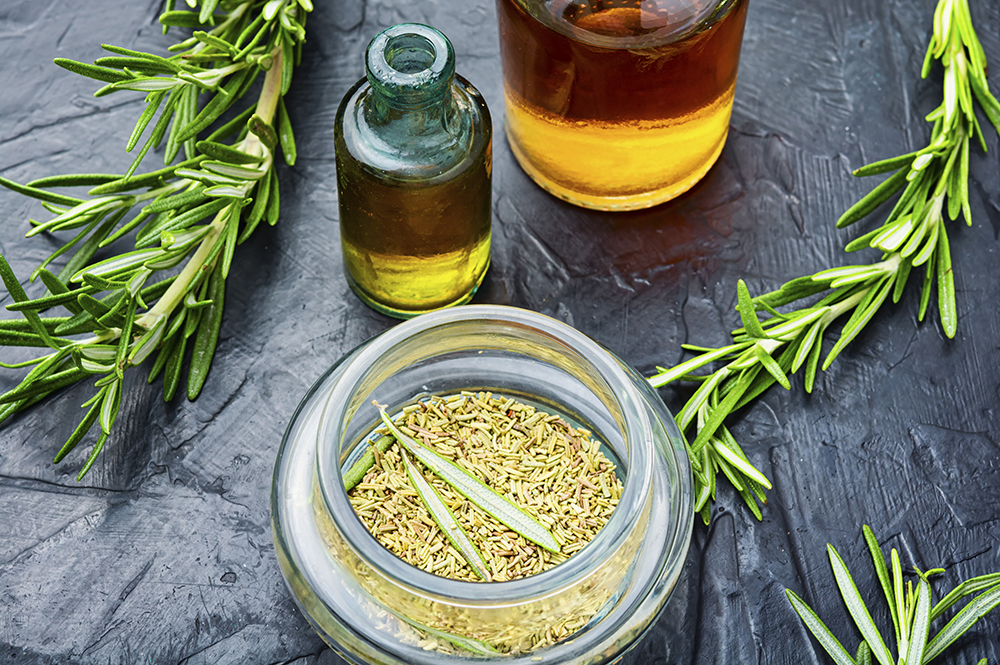
Rosemary essential oil has a herbaceous, slightly sweet smell that boosts immunity and fights off respiratory illnesses because of its m medicinal properties.
It contains anti-inflammatory, antispasmodic, and antimicrobial compounds that help reduce inflammation of the airways.
Rosemary essential oil is also known for its memory-boosting properties, so it can be helpful when you need to focus on getting better instead of dwelling on your flu symptoms. Just like peppermint essential oil, rosemary oil can be inhaled directly or diffused in the air. It can also be mixed with other essential oils to create a more potent blend.
Oregano Essential Oil
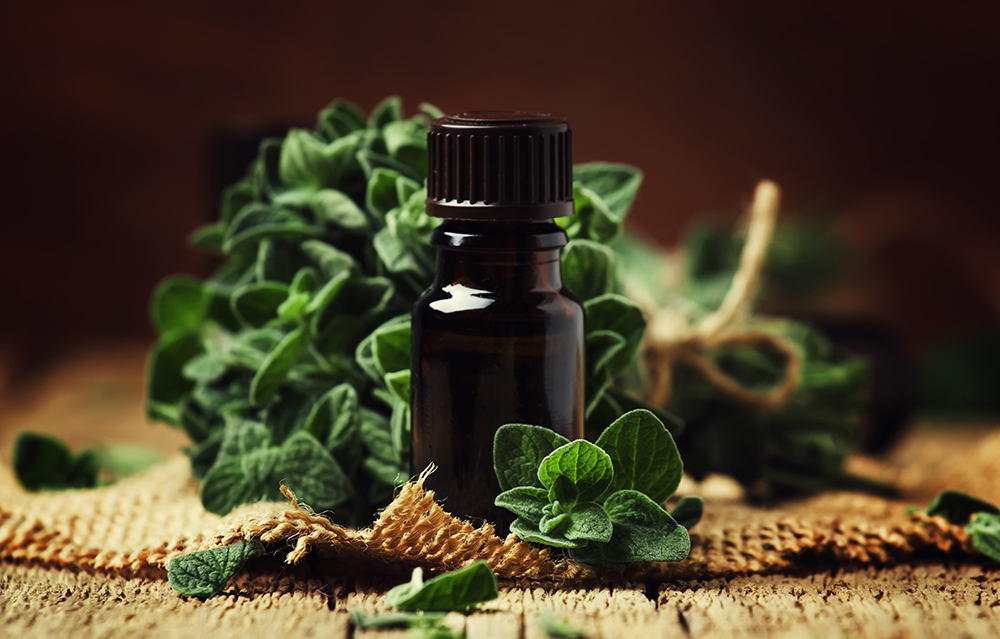
Oregano oil is an essential oil derived from wild oregano leaves and is known for its powerful antimicrobial, antifungal, and antibacterial properties.
It is one of the best essential oils you can use when having colds or flu because it helps fight off bacterial infections that may make your symptoms worse. This protective essential oil also has analgesic and anti-inflammatory properties, which help to reduce the pain, swelling, and discomfort associated with respiratory illnesses.
Oregano essential oil can be used topically to treat skin infections such as athlete’s foot or added to carrier oils like coconut oil or olive oil to create an immune-boosting essential oil blend that you apply topically to the chest and back. It can also be diffused in the air or inhaled directly.
Clove Essential Oil
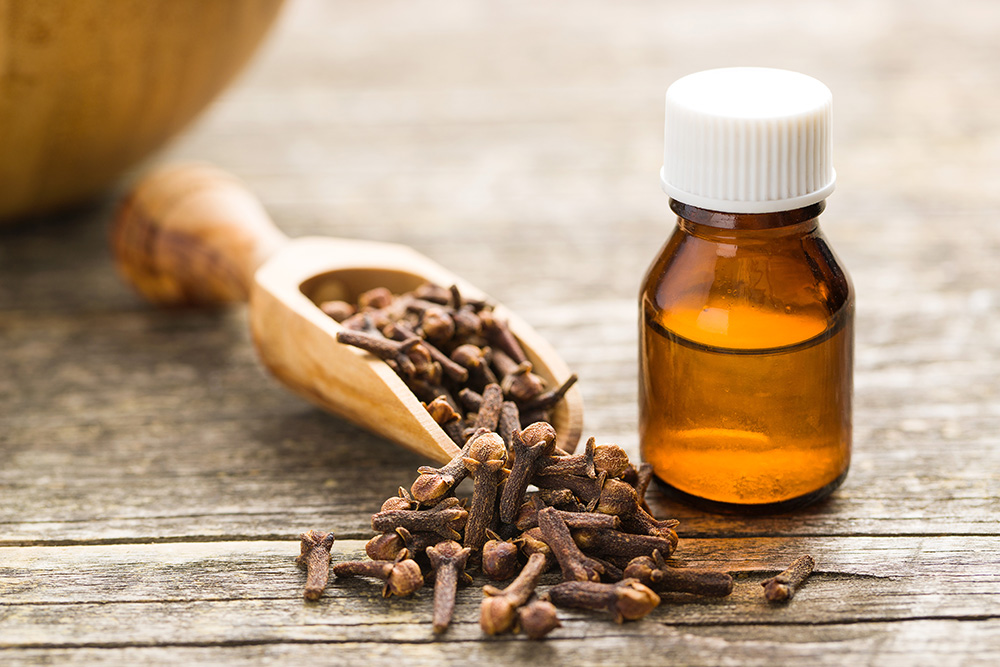
Clove essential oil is a strong, spicy essential oil best known for its analgesic properties. It helps numb pain and is perfect for treating headaches, toothaches, and other forms of pain associated with the flu.
Clove oil also has antiseptic properties, which help fight off bacterial infections that may make your symptoms worse. It can even reduce inflammation of the throat caused by coughing or swelling because it contains eugenol- a compound similar to capsaicin found in hot chili peppers that acts as an anti-inflammatory.
Clove essential oil can be inhaled directly or diffused in the air using an essential oil diffuser. It is also great for massages and a topical treatment for skin infections such as athlete’s foot because of its analgesic properties. Just like oregano essential oils, clove essential oil has strong antimicrobial properties and can be used to create an essential oil blend that is applied topically to the chest and back.
Sweet Orange Essential Oil
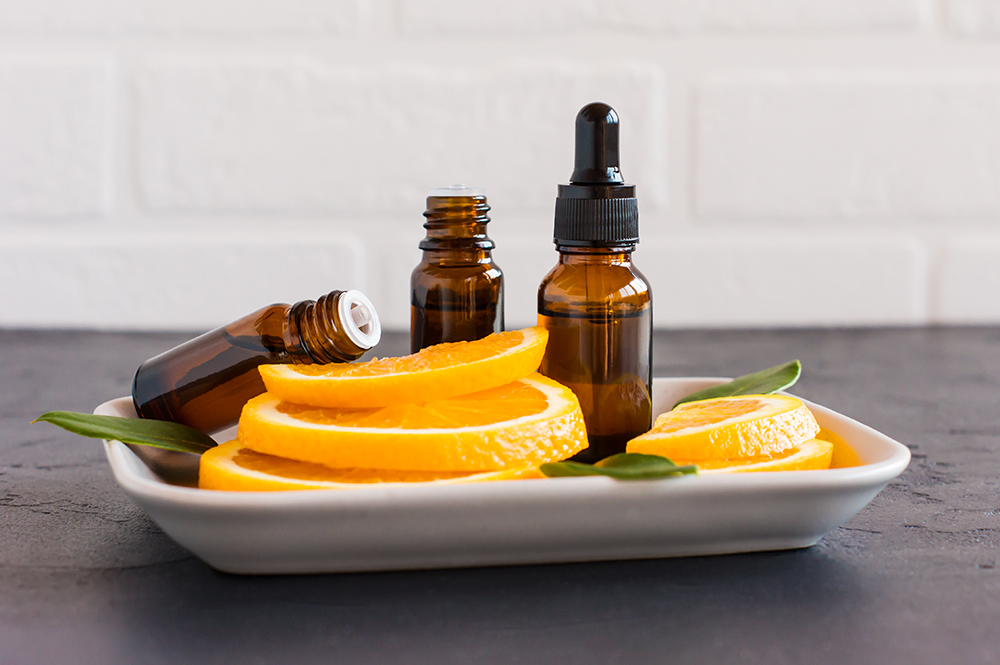
One of the best citrus oils out there, sweet orange essential oil has a fresh, uplifting scent that can help to improve mood and reduce stress.
It is excellent for treating respiratory illnesses because it helps open up the airways and clear congestion by dislodging mucus from the lungs. It also contains antioxidant properties, which make it helpful when you’re feeling under the weather.
Like other essential oils, sweet orange essential oil can be diffused in the air or inhaled directly. It can also be mixed with another essential oil such as lavender and applied topically to aching muscles and joints for pain relief. You can even add it to carrier oils to create an immunity-boosting topical blend that can be used to the chest and back.
Cinnamon Essential Oil
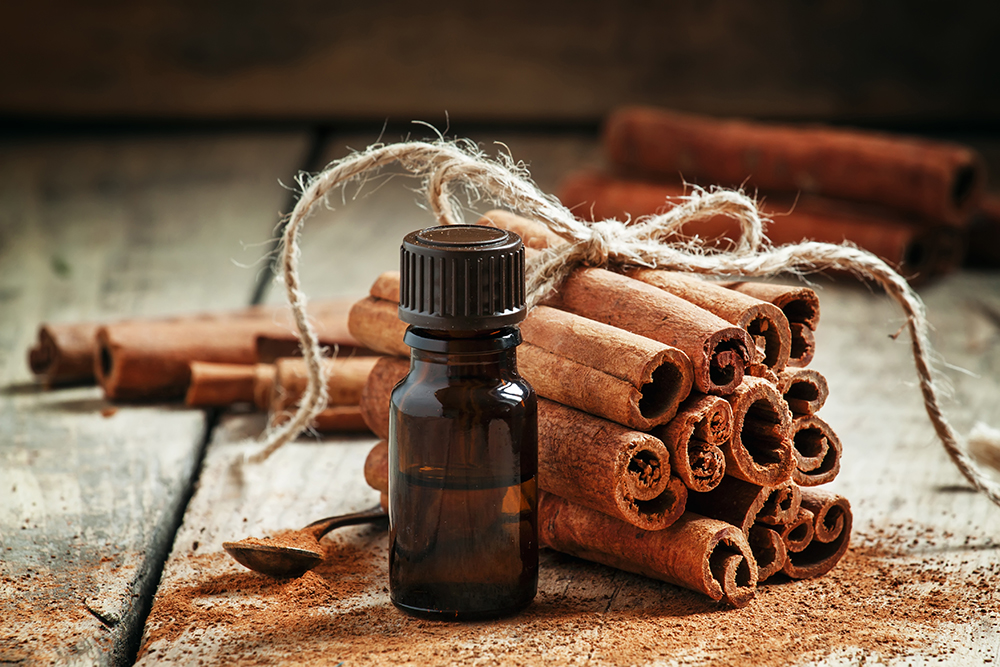
Cinnamon oil is a warm, spicy essential oil that improves mood and boosts the immune system.
Cinnamon essential oil can be used for respiratory ailments because it is an expectorant that helps thin phlegm making it easier to cough up. It also contains antibacterial properties, which make it helpful when you are experiencing sinus infections, flu symptoms, or other bacterial illnesses.
Just like other essential oils, cinnamon essential oil can be diffused in the air or inhaled directly. It can also be mixed with other essential oils such as ginger and applied topically to aching muscles and joints for pain relief.
Final Thoughts
The 10 essential oils we’ve outlined above are best suited for anyone looking to stay healthy and avoid colds and flu this winter.
We hope you enjoyed our list of the top 10 essential oils that will keep your immune system strong, fight off infection-causing bacteria, viruses, and inflammation!
Be sure to comment below or email us with any questions about which oils might be right for your needs. Happy oiling!




Leave A Comment